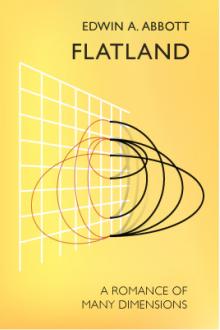Lorna Doone: A Romance of Exmoor by R. D. Blackmore (list of e readers TXT) 📖

- Author: R. D. Blackmore
Book online «Lorna Doone: A Romance of Exmoor by R. D. Blackmore (list of e readers TXT) 📖». Author R. D. Blackmore
I think that he felt that his time was come. I think he knew from my knitted muscles, and the firm arch of my breast, and the way in which I stood; but most of all from my stern blue eyes; that he had found his master. At any rate a paleness came, an ashy paleness on his cheeks, and the vast calves of his legs bowed in, as if he were out of training.
Seeing this, villain as he was, I offered him first chance. I stretched forth my left hand, as I do to a weaker antagonist, and I let him have the hug of me. But in this I was too generous; having forgotten my pistol-wound, and the cracking of one of my short lower ribs. Carver Doone caught me round the waist, with such a grip as never yet had been laid upon me.
I heard my rib go; I grasped his arm, and tore the muscle out of it* (as the string comes out of an orange); then I took him by the throat, which is not allowed in wrestling; but he had snatched at mine; and now was no time of dalliance. In vain he tugged, and strained, and writhed, dashed his bleeding fist into my face, and flung himself on me with gnashing jaws. Beneath the iron of my strength—for God that day was with me—I had him helpless in two minutes, and his fiery eyes lolled out.
* A far more terrible clutch than this is handed down, to weaker ages, of the great John Ridd.—Ed.'I will not harm thee any more,' I cried, so far as I could for panting, the work being very furious: 'Carver Doone, thou art beaten: own it, and thank God for it; and go thy way, and repent thyself.'
It was all too late. Even if he had yielded in his ravening frenzy—for his beard was like a mad dog's jowl—even if he would have owned that, for the first time in his life, he had found his master; it was all too late.
The black bog had him by the feet; the sucking of the ground drew on him, like the thirsty lips of death. In our fury, we had heeded neither wet nor dry; nor thought of earth beneath us. I myself might scarcely leap, with the last spring of o'er-laboured legs, from the engulfing grave of slime. He fell back, with his swarthy breast (from which my gripe had rent all clothing), like a hummock of bog-oak, standing out the quagmire; and then he tossed his arms to heaven, and they were black to the elbow, and the glare of his eyes was ghastly. I could only gaze and pant; for my strength was no more than an infant's, from the fury and the horror. Scarcely could I turn away, while, joint by joint, he sank from sight.
CHAPTER LXXV LIFE AND LORNA COME AGAIN
When the little boy came back with the bluebells, which he had managed to find—as children always do find flowers, when older eyes see none—the only sign of his father left was a dark brown bubble, upon a newly formed patch of blackness. But to the center of its pulpy gorge the greedy slough was heaving, and sullenly grinding its weltering jaws among the flags and the sedges.
With pain, and ache, both of mind and body, and shame at my own fury, I heavily mounted my horse again, and, looked down at the innocent Ensie. Would this playful, loving child grow up like his cruel father, and end a godless life of hatred with a death of violence? He lifted his noble forehead towards me, as if to answer, “Nay, I will not”: but the words he spoke were these:—
'Don,'—for he could never say 'John'—'oh, Don, I am so glad that nasty naughty man is gone away. Take me home, Don. Take me home.'
It has been said of the wicked, 'not even their own children love them.' And I could easily believe that Carver Doone's cold-hearted ways had scared from him even his favorite child. No man would I call truly wicked, unless his heart be cold.
It hurt me, more than I can tell, even through all other grief, to take into my arms the child of the man just slain by me. The feeling was a foolish one, and a wrong one, as the thing has been—for I would fain have saved that man, after he was conquered—nevertheless my arms went coldly round that little fellow; neither would they have gone at all, if there had been any help for it. But I could not leave him there, till some one else might fetch him; on account of the cruel slough, and the ravens which had come hovering over the dead horse; neither could I, with my wound, tie him on my horse and walk.
For now I had spent a great deal of blood, and was rather faint and weary. And it was lucky for me that Kickums had lost spirit, like his master, and went home as mildly as a lamb. For, when we came towards the farm, I seemed to be riding in a dream almost; and the voices both of man and women (who had hurried forth upon my track), as they met me, seemed to wander from a distant muffling cloud. Only the thought of Lorna's death, like a heavy knell, was tolling in the belfry of my brain.
When we came to the stable door, I rather fell from my horse than got off; and John Fry, with a look of wonder took Kickum's head, and led him in. Into the old farmhouse I tottered, like a weanling child, with mother in her common clothes, helping me along, yet fearing, except by stealth, to look at me.
'I have killed him,' was all I said; 'even as he killed Lorna. Now let me see my wife, mother. She belongs to me none the less, though dead.'
'You cannot see her now, dear John,' said Ruth Huckaback, coming forward; since no one else had the courage. 'Annie is with her now, John.'
'What has that to do with it? Let me see my dead one; and pray myself to die.'
All the women fell away, and whispered, and looked at me, with side glances, and some sobbing; for my face was hard as flint. Ruth alone stood by me, and dropped her eyes, and trembled. Then one little hand of hers stole into my great shaking palm, and the other was laid on my tattered coat: yet with her clothes she shunned my blood, while she whispered gently,—
'John, she is not your dead one. She may even be your living one yet, your wife, your home, and your happiness. But you must not see her now.'
'Is there any chance for her? For me, I mean; for me, I mean?'
'God in heaven knows, dear John. But the sight of you, and in this sad plight, would be certain death to her. Now come first, and be healed yourself.'
I obeyed her, like a child, whispering only as
 Have you ever thought about what fiction is? Probably, such a question may seem surprising: and so everything is clear. Every person throughout his life has to repeatedly create the works he needs for specific purposes - statements, autobiographies, dictations - using not gypsum or clay, not musical notes, not paints, but just a word. At the same time, almost every person will be very surprised if he is told that he thereby created a work of fiction, which is very different from visual art, music and sculpture making. However, everyone understands that a student's essay or dictation is fundamentally different from novels, short stories, news that are created by professional writers. In the works of professionals there is the most important difference - excogitation. But, oddly enough, in a school literature course, you don’t realize the full power of fiction. So using our website in your free time discover fiction for yourself.
Have you ever thought about what fiction is? Probably, such a question may seem surprising: and so everything is clear. Every person throughout his life has to repeatedly create the works he needs for specific purposes - statements, autobiographies, dictations - using not gypsum or clay, not musical notes, not paints, but just a word. At the same time, almost every person will be very surprised if he is told that he thereby created a work of fiction, which is very different from visual art, music and sculpture making. However, everyone understands that a student's essay or dictation is fundamentally different from novels, short stories, news that are created by professional writers. In the works of professionals there is the most important difference - excogitation. But, oddly enough, in a school literature course, you don’t realize the full power of fiction. So using our website in your free time discover fiction for yourself. 




Comments (0)